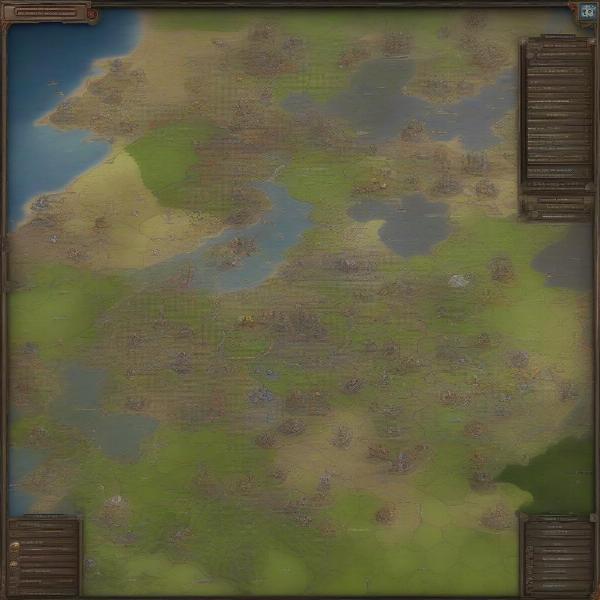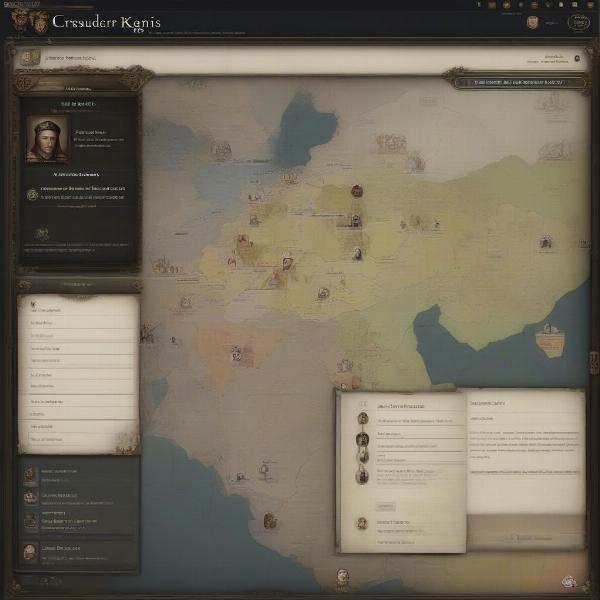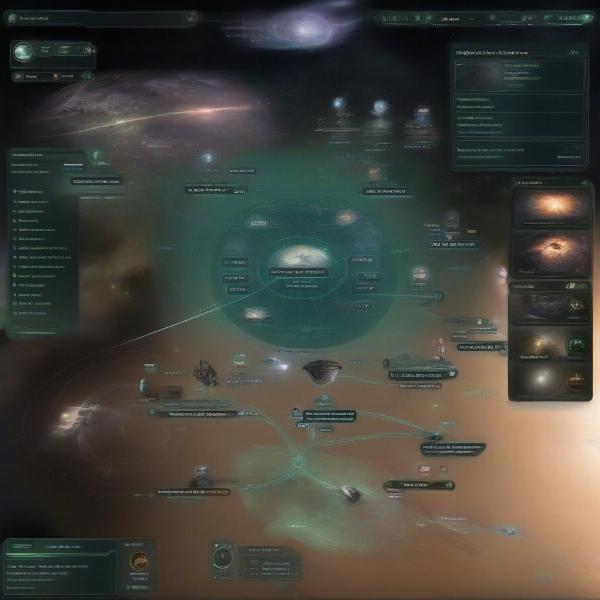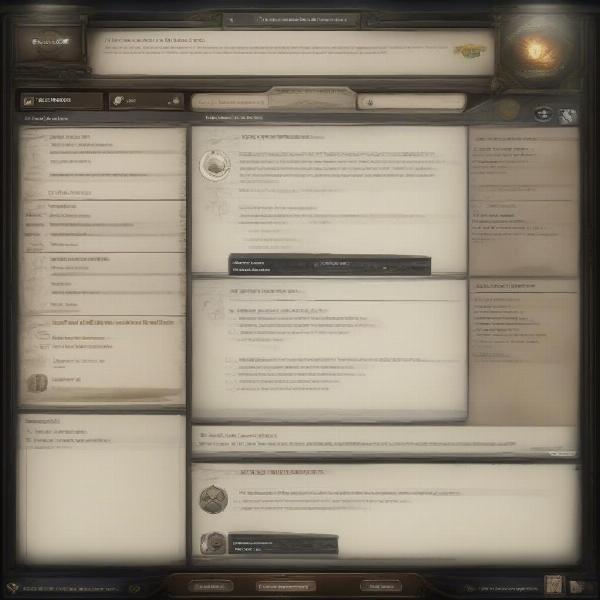Here at supremeduelist.blog, we’re always on the lookout for games that offer deep strategic gameplay, and few developers do it better than Paradox Interactive. Their titles are renowned for complex mechanics, historical depth, and the kind of emergent storytelling that keeps you hooked for hundreds of hours. This article explores what makes a Paradox game stand out, highlighting some of the best examples for both newcomers and seasoned grand strategy veterans.
Paradox games occupy a unique space in the gaming world, blending intricate systems with sandbox-style freedom. From leading nations through centuries of history to managing galactic empires, these games demand patience, planning, and a willingness to learn from your mistakes. This exploration will help you discover which Paradox titles best fit your strategic preferences, diving into core mechanics and unique features that define the genre.
What Makes a Paradox Game Unique?
Paradox Interactive has carved a niche for itself with games that are less about fast-paced action and more about slow-burn strategy. These aren’t games you can jump into and master in a few hours. They are designed to be intricate simulations, allowing players to manipulate history, politics, economics, and warfare on a grand scale. The complexity can seem daunting at first, but that’s also where the immense replayability lies. Each playthrough offers the potential for new scenarios and entirely different outcomes.
 grand-strategy-complex-systems
grand-strategy-complex-systems
One key characteristic of Paradox games is their focus on emergent storytelling. Instead of a linear narrative, the story of a campaign unfolds based on player decisions and the ever-shifting dynamics of the game’s world. Alliances can crumble, empires can rise and fall, and even the most meticulously planned strategies can be undone by unforeseen events. For example, the intricate diplomacy system can cause unexpected wars and betrayals, creating moments of drama and tension. This is something that separates these experiences from more straightforward strategy titles, where each mission is usually very linear. If you are looking for more examples of this style, exploring the world of best single player strategy games will offer you more amazing options.
Defining Grand Strategy
The term “grand strategy” is often used in connection with Paradox games. What exactly does it mean? Unlike real-time or turn-based strategy games that focus on tactical combat, grand strategy titles broaden their scope to include aspects of nation-building, diplomacy, resource management, technological advancement, and social systems. You are not just leading armies; you are guiding entire civilizations. This means that long-term planning and a holistic view are essential for success, which can be very challenging for some gamers.
Top Paradox Titles You Should Play
With such a vast library of titles, choosing where to begin can be a challenge. Here are some of the most acclaimed Paradox games, each offering a unique take on the grand strategy experience.
Crusader Kings III: Dynasty Building at Its Finest
Crusader Kings III is a medieval grand strategy game where you control a dynasty rather than a nation. Your goal is to build your family’s power and prestige through generations of scheming, warfare, marriages, and assassinations. The game is renowned for its character-driven gameplay, where your ruler’s personality, traits, and relationships directly influence the course of your campaign. The emergent narratives are often hilarious, tragic, and always memorable. It’s a blend of RPG elements and strategy that is hard to find elsewhere.
 crusader-kings-dynasty-management
crusader-kings-dynasty-management
“Crusader Kings III really sets itself apart,” says Dr. Eleanor Vance, a historian and game studies professor. “The focus on character interactions and dynastic management creates a much more personal and emotional experience compared to other grand strategy games.” She also emphasizes the unpredictable nature of the game, adding that “Players constantly encounter unexpected events that force them to adapt and make tough choices.”
Europa Universalis IV: A Journey Through Early Modern History
Europa Universalis IV is a grand strategy game that spans the early modern era, from the late Middle Ages to the Age of Revolutions. It’s known for its complex and detailed simulation of global politics, trade, and warfare. Players can choose to control any nation in the world, large or small, and guide them through centuries of historical events. The game’s depth, detail, and modding community make it a perennial favorite among strategy game fans. If you are interested in exploring more historical strategy, you should definitely consider checking out best single player strategy games for a few more options.
Stellaris: Conquering the Stars
Stellaris takes the grand strategy formula into the realm of science fiction. Players control a fledgling spacefaring civilization, exploring the galaxy, encountering alien species, and building a vast interstellar empire. The game’s focus on exploration, technology, and diplomacy, along with its impressive customization options, make it a unique experience. It is a perfect choice for fans of space operas and the idea of becoming an intergalactic power.
 stellaris-galactic-empire
stellaris-galactic-empire
“Stellaris is brilliant at allowing players to tell their own sci-fi narratives,” notes Kai Ito, a science fiction author and avid gamer. “The random events and the multitude of species create so many opportunities for unique and surprising stories.” He also points out the game’s learning curve, saying, “It does require a certain commitment but it is well worth the effort.”
Hearts of Iron IV: Mastering World War II
Hearts of Iron IV is a grand strategy game focused on World War II. Players take control of any nation involved in the conflict and must manage their military, economy, and politics to survive and thrive. The game’s deep focus on military strategy and logistics, along with the historical accuracy, makes it a must-play for history buffs and strategy enthusiasts. It provides a more detailed look at a singular conflict, rather than focusing on long spans of history like Crusader Kings III or Europa Universalis IV.
Getting Started with Paradox Games
The learning curve for Paradox games can be steep, but the rewards are well worth the effort. Here are a few tips to help you get started:
- Start with Tutorials: Most Paradox games have robust tutorials that walk you through the basics of gameplay. Take the time to complete them, even if you’re an experienced gamer.
- Focus on One Game: Don’t try to learn too many Paradox games at once. Pick one that interests you and focus on mastering its mechanics before moving on to another.
- Watch Let’s Plays: Watching experienced players on YouTube or Twitch can be a great way to learn advanced strategies and tactics.
- Read the Wiki: Paradox games often have extensive wikis with in-depth information about every aspect of gameplay. Use them to your advantage.
- Don’t Be Afraid to Fail: Failure is a part of the learning process in Paradox games. Don’t get discouraged by setbacks; use them as opportunities to learn and improve.
 paradox-game-tutorial-interface
paradox-game-tutorial-interface
Frequently Asked Questions
What is the best Paradox game for beginners?
While each has its unique challenges, Crusader Kings III is often recommended for beginners due to its more character-driven approach, which can be more engaging and forgiving than the complex map-based gameplay of titles like Europa Universalis IV.
Are Paradox games single player?
Yes, the core experience of most Paradox games is focused on single-player gameplay against AI opponents, however, they frequently offer multiplayer options if you are looking to test your strategies against other gamers.
Why are Paradox games so complex?
Paradox games are designed to be detailed historical or sci-fi simulations. This means they incorporate many layers of mechanics, from economic and political systems to military and technological developments, which are part of what makes them so engaging for fans.
Conclusion
Paradox Interactive’s games provide a unique blend of historical depth, complex systems, and emergent storytelling that is unmatched in the gaming industry. Whether you’re drawn to the dynastic intrigues of Crusader Kings III, the historical sandbox of Europa Universalis IV, the galactic adventures of Stellaris, or the strategic challenges of Hearts of Iron IV, there’s a Paradox game that will hook you for hours on end. We at supremeduelist.blog encourage you to dive in and experience the depth and complexity for yourself. Start your grand strategy journey today and see where your decisions take you!
Leave a Reply